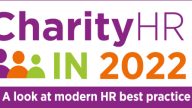HR, Management & leadership, Writing, Marketing
What’s the Word On … “Equality”?
Paul Brollo unpacks the meaning behind the word "equality"
When we name things, we tend to believe we know them
Words are useful because they allow us to name the things which surround us. But by naming them, we tend to assume that we know them. And once we assume we know them, we tend to assume that everyone else knows them exactly as we do.
As a result, words are problematic too. Because the meaning of words is conditioned – or learnt through years of repetition and association – we have plenty of opportunity to reinforce our own meaning of words. And so many of those words can become conditioned in isolation.
We tend to assume that everyone knows what our choice of words means
Take the word “equality”, for example. These days, I hear my clients using this word a lot, particularly in the context of Equality, Diversity and Inclusion (EDI). My clients usually say that the content of any training I provide must fit in with their EDI Policies.
The word “equality” is what we call an abstract noun, and a noun is a word that identifies something. Significantly, many of the things we speak about are not tangible objects but abstract concepts or ideas.
We can’t measure concepts and ideas objectively
Abstract nouns are useful because they allow us to talk about the things we can experience but can’t see or touch. At the same time, they’re problematic precisely because we can’t measure the things about which we’re talking.
If we look out into nature, we don’t see concept or ideas. We see a food chain and we see ourselves at the top of that chain. We don’t see equality when we observe nature.
Most concepts or ideas come from our inner knowledge – or intuition
So where does the concept of equality come from? It comes from our inner knowledge or teaching – our intuition – which tells us that while we are part of the animal kingdom, we don’t have to behave exactly like other animals.
When we project our intuition outwards into the world around us, we can come to believe that culture and society could be equal for everyone.
We can arrive at simplistic conclusions about our ideas
From this perspective, the process of creating equality seems straight-forward enough: we should aim to raise the status of those who have been oppressed, and in the process, we can create more equality in our society.
But creating equality in the context of past inequality is complex. We tend to argue that men are more equal than women; that white people are more equal than non-white people; or that heterosexual people are more equal than people with alternative sexuality – usually without noticing that those arguments can lead us to simplistic conclusions about privilege.
Status in society usually comes at a very high price
Let’s look more closely at gender equality. We tend to argue that if we raise the status of women in society, we’ll automatically create gender equality. But what we tend to overlook is that the privilege of being male has consequences, and those consequences have a significant effect on the people to whom society has given that privilege.
For the men conscripted into World War II, for example, that consequence was wide-spread post-traumatic stress (PTS) – most of which was misunderstood and undiagnosed. Those men raised their sons from a position of being wounded, and they in turn raised their sons from a similar position.
Creating equality might involve addressing everyone’s status differently
Many of the men in key leadership positions today could be expressing their masculinity from a position of inherited PTS. If we want to create more gender equality in our society, we might need to understand privilege more holistically – as well as the effect that privilege has on how the so-called powerful see themselves.
When we understand the self-perception of the privileged, we might have more insight into how to create sustainable equality. For some, using words such “raising the status of women”, for example, could mean that we are threatening to “lower the status of men”. No wonder we see a strong reaction from some people.
If we choose to use words such as “regulating the status of everyone”, more people might automatically come to understand that no one is better or worse than anyone else. That could be the power of language in practice.
Choose your words carefully when you want to bring about change
Using words to bring about social change is a tricky process. If you want to know more about how to choose your words with care, feel free to contact me.
Paul Brollo is a DSC associate trainer, he will be putting on a workshop titled Gender Neutral Language at our Charity HR in 2022 conference. He also has two training courses coming up – Writing for Impact on Tuesday 5 April and Editing for Impact on Monday 11 April.


